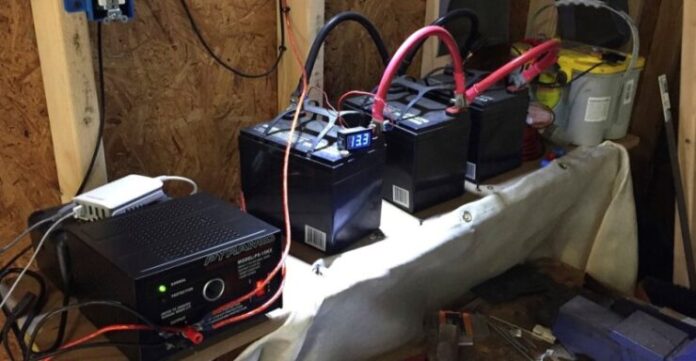
All of us use an inverter almost every day and especially people who use batteries as the main source of electricity.
Whether it’s an electricity cut off or whether a short circuit happens at our homes – we as human beings need electricity every time, so we are forced to use inverters as electricity backups.
Buying an inverter and setting it up is not that difficult but getting the exact battery that is capable enough to power the inverter is somewhat difficult.
Besides, this must be noted that a deep cycle battery should be connected with the inverter only after making some basic calculations that may include voltage, power, current, etc.
When it comes to batteries and inverters, the most common question asked is “How long a deep cycle battery can power an inverter?”.
There is no such objective answer for this question and in fact, there’s a different answer for every different battery and inverter.
Now you might be puzzled for finding the number of hours for which a battery can run an inverter.
Not to panic as we will here be dealing with some basic information and ways from which you can calculate the number of working hours for any pair of deep cycle batteries and an inverter.
Factors Affecting How Long Will a Deep Cycle Battery Power an Inverter?
First above all, you need to find out these 3 basic values:
Battery voltage
A basic deep cycle battery has a voltage of 12 volts, however, this may vary in some cases.
Also, note that always the appliance that is drawing the electricity/power should have a smaller value of voltage.
In other words, make sure that the voltage of the battery should always be greater than the inverter.
For putting unto the formula, you only need to know the value for the voltage of the battery.
Ampere-hours of the battery
The value or rating for amp-hours always tells how efficient your battery is.
It lets you know how many amperes of currents can be drawn from the battery within an hour.
The value for ampere-hours varies from 50AH to 150AH.
The higher the value, the more powerful the battery is.
Before purchasing a battery, make sure that you get a deep cycle battery with at least 100 ampere-hours if you wish to run your inverter every day for hours without any break.
Batteries with less than 100 ampere-hours drain very quickly and you will need to charge them regularly.
So, it’s better that you always get a deep cycle battery with a higher ampere-hour rating.
Combined watt value
Last but not least. You should note down the number of watts of all the electric appliances that you wish to run through the inverter.
For example-
If you wish to power a T.V. (300 watts), a toaster (100 watts), a computer (1500 watts) and so on…….Make a list of all the household appliances that will be powered through the inverter.
Now, you need to add them all.
300+100+1500+…….
The final value will be the number of watts and you will use this combined value further in the formula for finding the number of hours.
Formula
Now, when you have got the value for the battery voltage, ampere-hour,s, and the total number of watts.
You have to put these in a very simple formula and find out the answer.
Battery capacity in hours
10 x (Battery Capacity in Amp Hours) / (Load Power in Watts)) / 2
Put on the values and trust me you won’t be requiring the calculator for this.
FAQ’s
What should I do, If my deep cycle battery is not sufficient for providing enough power?
Which battery is best for inverters- automotive or deep cycle?
Final Words
We hope that we have provided you with ample information that you needed to find out the number of hours.
Hence, this complete article proves that it is not the battery that decides the running hours but it all depends on the appliances that are running through the inverter.
The less the appliances, the more the working hours of the battery.
One last thing for the conclusion, always try to recondition your deep cycle battery whenever you face any issue with your battery in case if it dies or loses its strength.






